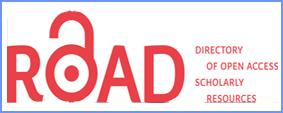RELIGIOUS EDUCATION IN KERA COASTAL COMMUNITIES, KUPANG, NTT
Abstrak
This research focuses on religious education in Pula Kera and its relationship to the tradition of harmony and the existence of the Bajo Tribe community. For this reason it is necessary to explain: 1) how is the portrait of the Kera Island community; 2) how religious education services to the Pula Kera community; and 3) how the government policy and community participation about religious education in the island of Kera. The purpose of this study was to understand the relationship of religious education with the tradition of harmony and the Islamic community of Kera Island. Religious education institutions on Kera Island have limitations on: 1) facilities and infrastructure; and 2) government support. Both of these limitations can be said to be closely related to the unclear population position of the Kera Island community. Therefore, they need the involvement of private institutions as a temporary solution. For a permanent solution, it is necessary to certify the population of the island of Kera.Referensi
Baskara, Benny, Islam Bajo: Agama Orang Laut, Tangerang Selatan: Javanica, 2016
Wawancara dengan Ustadz Yusril, Guru Pembina MI/TPQ Pulau Kupang, 26 Mei 2016
Wawancara dengan Husein Slamet, PNS Seksi Pendidikan Islam Kankemenag Kab. Kupang, 24 Mei 2016
Wawancara dengan Jumadi Umar, Aktivis Himpunan Mahasiswa Islam (HMI) Cabang Kupang, 24 Mei 2016.
Wawancara dengan Yorhans Lopis, Kepala Kantor Kemenag Kab. Kupang, 24 Mei 2016.
Wawancara dengan Firman, mantan Aktivis Himpunan Mahasiswa Islam (HMI) Cabang Kupang, 24 Mei 2016.




.png)









